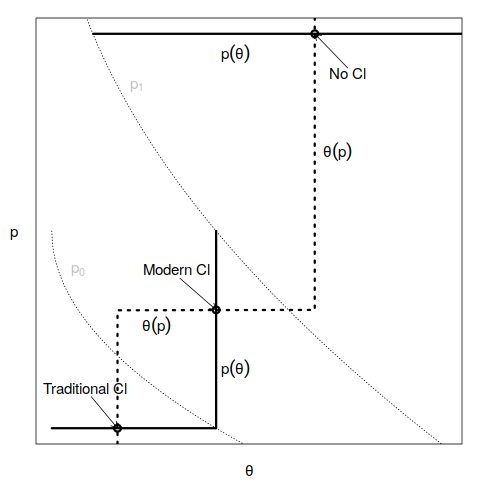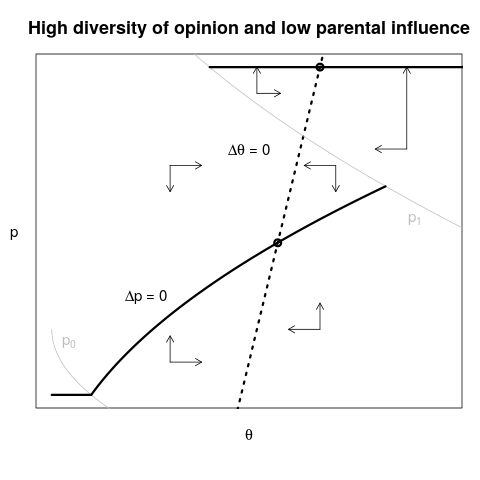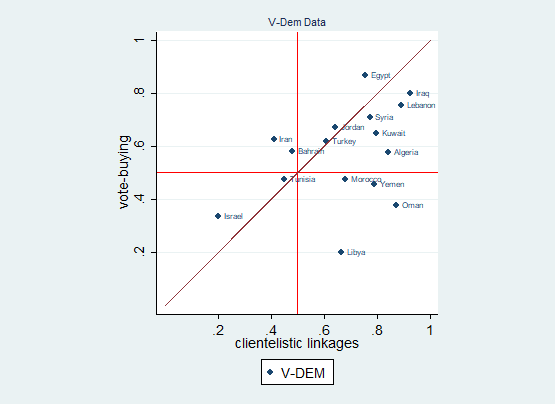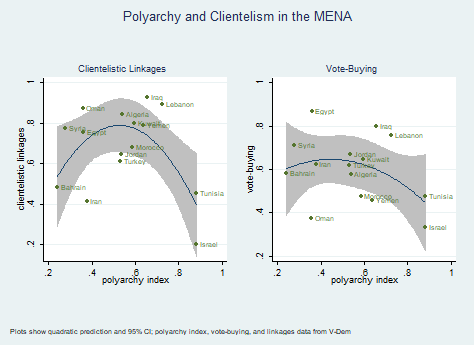Pellicer, Miquel, Eva Wegner, Markus Bayer, and Christian Tischmeyer. 2022. “Clientelism from the Client’s Perspective: A Meta-Analysis of Ethnographic Literature.” Perspectives on Politics 20 (3): 931–47. https://doi.org/10.1017/S153759272000420X.
This paper bridges the gap between mainstream political science and ethnographic literatures on clientelism by conducting a meta-analysis of ethnographic literature on clientelism from the client perspective. We code characteristics of clientelistic exchanges described in this work. We use cluster analysis and principal component analysis to systematize these data. Cluster analysis groups exchanges into three core subtypes of clientelism (“vote-buying”, “relational”, and “collective”); principal component analysis delivers two fundamental dimensions of clientelism: equal-unequal and individual-universal. We show that the two dimensions are associated with different aspects of client welfare and trade-offs from the client perspective. Our results reaffirm and reconcile existing deductive typologies of clientelism and can serve as a basis for a structured study of the demand side of clientelism.
Keywords: Clientelism, typology, client welfare, political ethnography, meta-analysis


Pellicer, Miquel, Eva Wegner, Lindsay J. Benstead, and Ellen Lust. 2021. “Poor People’s Beliefs and the Dynamics of Clientelism.” Journal of Theoretical Politics 33 (3): 300–332. https://doi.org/10.1177/09516298211003661 [Open Access].
Why do some poor people engage in clientelism while others do not? Why does clientelism sometimes take traditional forms and sometimes more instrumental forms? We propose a formal model of clientelism that addresses these questions focusing primarily on the citizen’s perspective. Citizens choose between supporting broad-based redistribution or engaging in clientelism. Introducing insights from social psychology, we study the interactions between citizen beliefs and values, and their political choices. Clientelism, political inefficacy and inequality legitimation beliefs reinforce each other leading to multiple equilibria. One of these resembles traditional clientelism, with disempowered clients that legitimize social inequalities. Community connectivity breaks this reinforcement mechanism and leads to another equilibrium where clientelism takes a modern, instrumental, form. The model delivers insights on the role of citizen beliefs for their bargaining power as well as for the persistence and transformation of clientelism. We illustrate the key mechanisms with ethnographic literature on the topic
Keywords: Clientelism, social psychology, efficacy, inequality


Kincaid, Harold, Miquel Pellicer, and Eva Wegner. 2023. “Philosophy of Science Issues in Clientelism Research.” In The Oxford Handbook of Philosophy of Political Science, edited by Harold Kincaid and Jeroen Van Bouwel, 395–418. Oxford University Press. https://doi.org/10.1093/oxfordhb/9780197519806.013.19.
Clientelism concerns the distribution of resources from politicians to voters in exchange for political support. It is a widespread phenomenon globally and generally thought to be a serious obstacle to full democracy. This chapter uses some current ideas from philosophy of science about the place of definitions, theories, mechanisms, holism of testing and contextual elements in explanation to address the successes and areas for improvement in the now burgeoning political science research on clientelism. We document the plurality of definitions of clientelism and show that they generally do not fit the traditional necessary and sufficient conditions notion of definitions. We argue that a plurality of definitions, definitions which are often informal in nature, is not necessarily a problem if research is cognizant of how it picks out clientelistic phenomena and does so in empirically fruitful ways. To advance a shared understanding of the phenomenon we propose a definition of clientelism based on three necessary conditions: inequality between patron and client, implicit conditionality, and exchange of resources for political support. We discuss explanatory frameworks by looking at, first, the general questions about clientelism that are being asked, second, the broad type and system of causes and the specific proposed causal factors that instantiate them, and third questions about evidence raised by alternative possible explanations.
Political clientelism is a linkage between a political actor (the patron) and one or more citizens (the clients) that has three essential components. First, the patron provides some type of resource and the client provides political support. Second, there is mutual agreement that the main rationale for the exchange is its conditionality. Third, the patron is more powerful than the client(s).
Definition
Pellicer, Miquel and Eva Wegner. “Clientelism in MENA Elections,” in Handbook on Elections in the Middle East and North Africa, edited by Francesco Cavatorta and Valeria Resta, forthcoming
While there is a consensus that MENA politics is highly clientelistic, few researchers have looked at the extent and nature of clientelism involving average citizens. This chapter seeks to fill this gap. First, we analyse existing public opinion and expert data from various projects to determine the extent of clientelism in MENA elections. These data confirm that MENA electoral politics are highly clientelistic. They also suggest that the nature of clientelism in the MENA is tilted in the direction of collective and relational strategies rather than vote-buying. The most clientelistic countries in the MENA appear to be those at intermediate levels of polyarchy. Second, we present data from an original survey on demand for different forms of clientelism in Tunisia. We show that Tunisians clearly prefer collective forms of clientelism – where local public goods are exchanged for blocks of votes – compared to individual forms of clientelism and relate this finding to differences in social stigma attached to these types. Last, we investigate how demand for clientelism relates to demand for democracy. We find that respondents with high demand for clientelism also tend to be those indicating that the type of political regime does not matter to them and that they would be willing to give up democracy for better services. These respondents also tend to have higher trust in politicians. This suggests a circle where autocratic politicians deliver goods in exchange for support, are appreciated by citizens for this service, who, in turn are indifferent to the nature of the political regime.


Additional Work
Wegner, Eva, Miquel Pellicer, Markus Bayer, and Christian Tischmeyer. 2022. “Citizen Assessments of Clientelistic Practices in South Africa.” Third World Quarterly 43 (10): 2467–87. https://doi.org/10.1080/01436597.2022.2099825.
Pellicer, Miquel and Eva Wegner. “What is bad about clientelism? Citizen perceptions in poor communities in South Africa and Tunisia,” revise and resubmit
